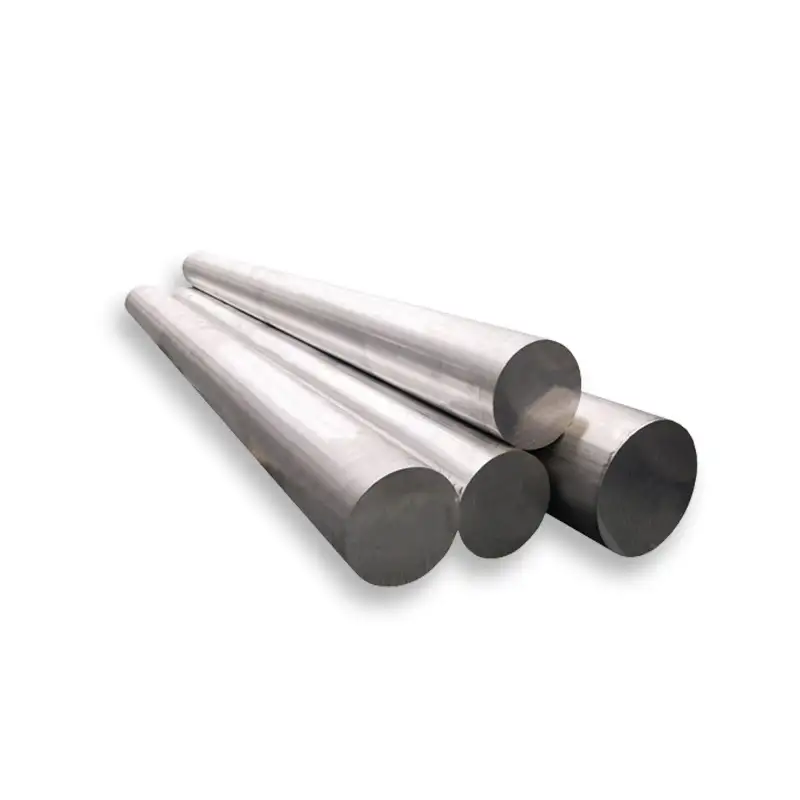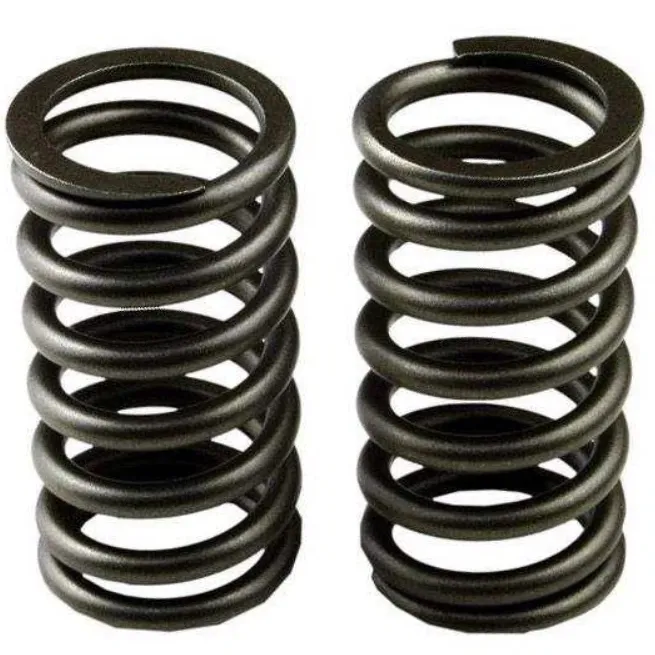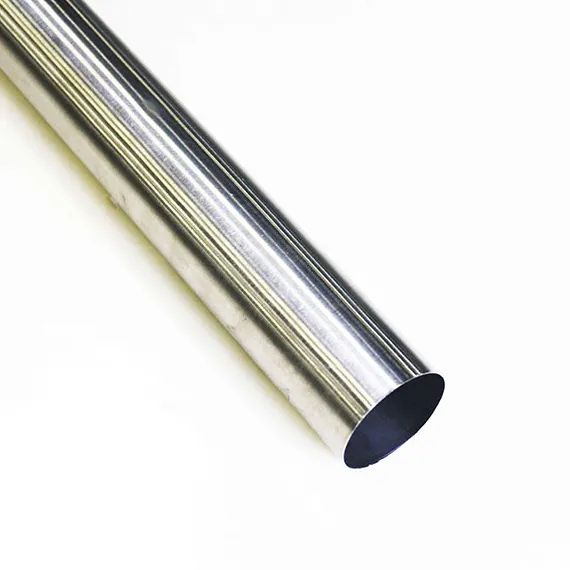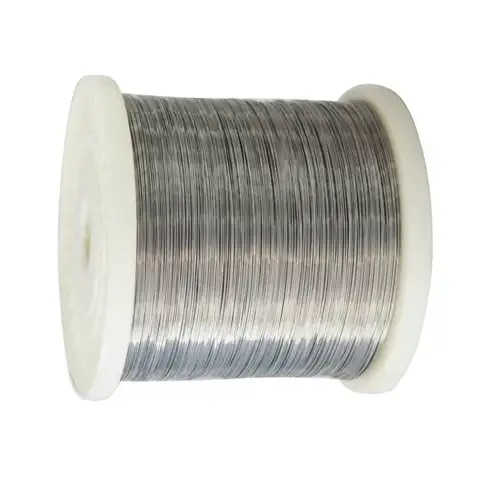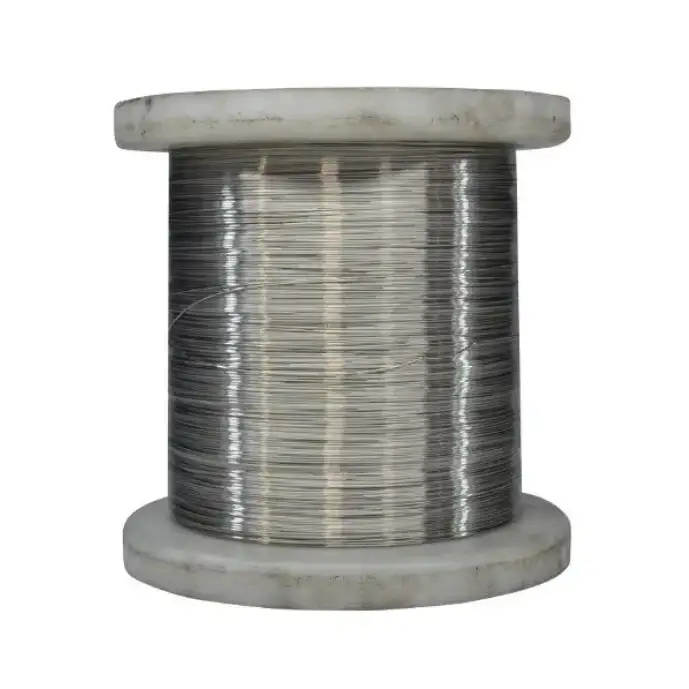Inconel 601 bar (UNS N06601, W.Nr. 2.4851) is a nickel-chromium alloy with added aluminum engineered for reliable resistance to high-temperature oxidation and carburization while retaining robust mechanical strength at elevated temperatures; for critical furnace, petrochemical, and high-temperature process parts that require long life under cyclic heating, 601 bar is often the preferred choice. If you need certified round bar, hex, or forged blanks from a China factory with competitive 100% factory pricing and rapid stock delivery, MWAlloys supplies certified Inconel 601 bar with mill test reports and fast shipment options for industrial volumes.
What is Inconel 601?
Inconel 601 is a nickel-chromium-iron alloy modified with aluminum for strong, adherent oxide formation. The aluminum content enhances resistance to oxidative attack and minimizes oxide spalling during repeated thermal cycling, which makes the alloy particularly reliable for radiant tubes, furnace muffles, and high-temperature process parts. It combines corrosion resistance in certain chemical environments with good elevated-temperature strength and ductility relative to competing nickel alloys.
Chemical composition
Below is a standard composition window used by stockists and mill datasheets. Manufacturer certificates will list actual analysis per lot.
| Element | Typical / Limit (wt%) |
|---|---|
| Nickel (Ni) | 58.0 – 63.0 |
| Chromium (Cr) | 21.0 – 25.0 |
| Aluminum (Al) | 1.00 – 1.70 |
| Iron (Fe) | Balance (remainder) |
| Carbon (C) | ≤ 0.10 |
| Manganese (Mn) | ≤ 1.00 |
| Silicon (Si) | ≤ 0.50 |
| Sulfur (S) | ≤ 0.015 |
| Cobalt (Co) | ≤ 1.00 |
Source: technical datasheets and mill specifications for UNS N06601.
Practical note: buyers should always request the mill test report (MTR/EN 10204) because Ni/Cr/Al percentages and carbon control can vary by mill and product form. Certification affects performance in strict aerospace or petrochemical contracts.
Key physical and mechanical properties
The tables below summarize commonly published, typical values used for design and procurement. For engineering calculations use certified test data from the produced lot or the exact specification called out on the purchase order.
Physical properties
| Property | Typical |
|---|---|
| Density | ~8.15 g/cm³ (0.295 lb/in³) |
| Melting range | ~1300–1370 °C (2374–2494 °F) |
| Thermal conductivity (room temp) | ~10–13 W/m·K (low compared with steels) |
| Coefficient of thermal expansion (20–100°C) | ~13.0 µm/m·K (approx.) |
Mechanical (room temperature, typical for bar/annealed)
| Property | Typical |
|---|---|
| Tensile strength (UTS) | ~620–860 MPa (varies with temper & form) |
| Yield strength (0.2% offset) | ~200–450 MPa (depending on heat treatment) |
| Elongation (in 50 mm) | ~30% (annealed conditions) |
| Hardness (HV) | ~150–220 (depending on processing) |
Data source: manufacturer technical bulletins and independent material data references. Use certified mechanical test results from the supplier for critical components.
Specifications and standards
Common specifications that cover Inconel 601 bar, rod and forgings include:
-
ASTM B166 / ASME SB166 — Rod, bar and wire for nickel alloys.
-
AMS / EN / DIN cross-references — e.g., W.Nr. 2.4851, UNS N06601; European and German material numbers appear in cross-reference tables.
-
ISO standards for bar and forging dimensions (ISO 9723 / ISO 9725 etc.) are sometimes referenced by mills.
Buyer tip: specify the standard, testing level (MTR type), hardness limits, and any NACE / ISO 15156 requirements if the alloy will be used in sour service or oil & gas applications.
Equivalent grades and cross references
Global identifiers help avoid confusion when ordering internationally:
-
UNS: N06601.
-
Werkstoff (W.Nr): 2.4851 (commonly used in Europe / Germany).
-
Common commercial names: Alloy 601, Inconel® 601. Cross-reference charts list matching EN/DIN numbers and other trade names.
Typical uses and service examples
Inconel 601 bar and forgings are selected for:
-
Radiant tubes, muffles, retorts and thermocouple protection tubes in high-temperature furnaces.
-
Combustion system and heater components in chemical plants and reformers (high oxidation / carburization resistance).
-
Elements exposed to cyclic thermal loading where oxide spalling is a concern.
-
Select aerospace and heat-resistant structural components where combination of oxidation resistance and mechanical strength is required.
Design note: When higher creep strength is required at very high temperatures, other nickel alloys (e.g., 617, 625, 718) may be preferred; 601 is selected where oxidation/carburization resistance plus reasonable strength are the priority.
Manufacture, heat treatment, welding and machining
-
Forming: bar and forgings are available in solution-treated or annealed conditions. Solution treatment is used for rupture-limited high-temperature service; annealed condition is used where ductility and machinability matter.
-
Welding: 601 welds well with appropriate filler alloys; pre- and post-weld practices should follow the welding procedure qualification for the application.
-
Machinability: typical machining is tougher than stainless steels (higher tool wear). Carbide tooling and rigid setups are recommended; plan for slower feeds and heavier cut tool materials.
-
Heat treatment: solution anneal & rapid quench may be used for specific microstructure control; refer to mill datasheets and AMS/ASTM guidance.
Inconel 601 bar sizes and weights
Stockists commonly carry round bar, hex, square and flats. Below is a sample weight table for round bar (illustrative; confirm exact values with supplier).
Sample — Round bar nominal weights (approx.)
| Diameter (inch) | Lbs/ft | Kg/m |
|---|---|---|
| 1.00 | 3.378 | 5.03 |
| 2.00 | 13.51 | 20.11 |
| 3.00 | 30.35 | 45.17 |
| 4.00 | 60.70 | 90.28 |
| 6.00 | 136.6 | 203.4 |
(Expanded commercial tables with standard sizes and exact lb/ft values are published by round-bar stock suppliers; see weight charts.)
Ordering length: common mill lengths range from 1000–3000 mm for round bar; cut-to-length and value-added services (turning, threading) are widely offered.
2025 price comparison (United States, Europe, China)
Important: alloy pricing is volatile; final contract prices depend on order quantity, product form (bar, plate, tube), certification level (MTR, heat treatment, full chemical & mechanical testing), delivery terms, and surcharges tied to nickel and alloy markets. The numbers below are indicative 2025 ranges assembled from active stockist price sheets and supplier quotes — use them only for budgeting and request formal quotes for purchase.
2025 indicative price ranges (USD per kilogram, approximate)
| Region | Typical USD/kg (2025 range) | Notes / source |
|---|---|---|
| United States | $40 – $90 / kg | Industrial distributors and specialty stockists list alloy 601 bar and plate at higher retail levels for small qty; premium for certified aerospace lots. |
| Europe | $38 – $70 / kg | European stockists and price indexes show plate/round bar in mid-range; import parity and VAT/shipping affect delivered cost. |
| China (factory / bulk) | $8 – $50 / kg (commonly $20–$45/kg for bar) | Direct China factory prices and Alibaba/Made-in-China offers show wide spread: small retail lots can be pricey, bulk factory shipments are more competitive. Verify MOQ and certification. |
How to interpret ranges:
-
The low end may reflect large volume, untested stock, or raw mill tons shipped in bundles.
-
The high end reflects small orders, cut-to-size with full traceability and special processing, or high domestic distributor markup.
-
Special Metals and other mill surcharge bulletins show alloy surcharges (per lb) that are added monthly to base prices; these surcharges materially affect final cost.
Recommendation: include exact form, mass quantity, required certificates (3.1/3.2/EN 10204), heat treatment state and delivery terms on the RFQ; request explicit unit pricing and total landed cost including duties and transport.
Inspection, testing and certification
For critical applications, require the following from your supplier:
-
Mill Test Report (MTR) conforming to EN 10204 3.1/3.2 or equivalent.
-
Chemical analysis traceable to the lot (Ni/Cr/Al content) and mechanical test results (UTS, yield, elongation).
-
Non-destructive testing (if needed): PMI (positive material identification) for final acceptance, ultrasonic or magnetic particle inspections for forgings.
-
Heat treatment records and finish/straightness tolerances.
-
Provenance and mill name (use reputed mills for high-assurance projects).
Purchasing checklist & why choose MWAlloys
Checklist before you buy
-
Exact UNS / trade name: UNS N06601 / Inconel 601.
-
Product form: round bar, hex, square, forging blank.
-
Dimension tolerances & length.
-
Required standard (ASTM B166 / ASME SB166 / EN / ISO).
-
Certificate level and additional testing.
-
Delivery lead time and incoterm.
-
Packing, labelling and customs documentation.
Why MWAlloys? (brand statement tailored for procurement)
MWAlloys offers factory-sourced Inconel 601 bar from Chinese mills with:
-
Factory pricing (100% factory price) for competitive landed costs on bulk orders;
-
Quick stock delivery for common diameters and milling states because we hold inventory in strategic warehouses;
-
Full MTRs and traceability on request;
-
Value-added services (cut to length, machining, threading) prior to shipment;
-
Export experience for global shipments with documentation tailored to import requirements. (Contact MWAlloys export team for a tailored quotation and lead time.)
FAQs
-
Is Inconel 601 magnetic?
Inconel 601 is essentially non-magnetic in the annealed state; slight magnetic response can be observed after heavy cold work. -
Can Inconel 601 be used in carburizing atmospheres?
Yes — it has good resistance to carburization and carbonaceous environments thanks to its chromium and aluminum content. -
What is the main difference between Inconel 600 and 601?
601 contains higher chromium and adds aluminum; this improves oxidation resistance at very high temperatures compared with 600. -
Which standard covers Inconel 601 bar?
Commonly ASTM B166 / ASME SB166 for rod, bar and wire. Specify required standard on the PO. -
How should Inconel 601 be machined?
Use carbide tooling, stiff setups, reduced feed rates and appropriate coolant; expect higher tool wear than austenitic stainless steels. -
Is Inconel 601 weldable?
Yes; it welds with appropriate nickel-base fillers and qualified procedures. Pre/post weld practices should match application demands. -
What forms are available from MWAlloys?
Round bar, hex, square, flats and forged blanks in standard mill lengths; cut-to-length and machining available. (Contact MWAlloys sales.) -
What certifications can MWAlloys provide?
Mill Test Reports (MTRs) and EN 10204 inspection certificates are provided; higher-level testing and PMI on request. -
How do I estimate weight for ordering?
Use standard weight charts (lbs/ft or kg/m) for round bar; request an exact weight confirmation from the seller. -
How volatile are prices?
Very volatile. Nickel and alloy surcharges update monthly and can shift final pricing significantly; request a firm quote with surcharge terms.

